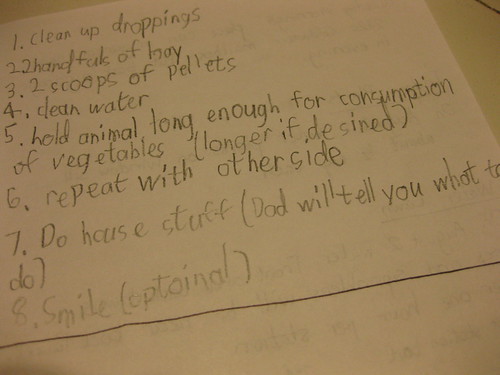Your Work Matters: Making History (or Not)
Blog / Produced by The High Calling
I was running afternoon errands and pulled into a parking spot between the Rockrimmon Library Branch and Safeway. First on the list: return library books. Near the library entrance, I spotted a bumper sticker that said, “Well-Behaved Women Don’t Make History,” which immediately triggered some thoughts, including:
- The woman who peeled the backing off this sticker and pressed it permanently onto her rear windshield—what is she like?
- What does she mean by “well-behaved”?
- What do poorly behaved women do?
- If she knew me, would she consider me “well-behaved”?
- If so, would she disdain me for being well-behaved and not the type to make history?
- What does “making history” mean to her?
Making history typically means that, years and decades and centuries from now, people will know about her actions and influence. Making history implies that our lives are recorded and remembered. Making history means being famous.
I walked into the library with my 9-year-old son. We dropped our books through the book return—a delightful, mysterious hole in the green wall leading to the sorting room, whose door is secured with a digital combination lock that beeps when they push the combo numbers. These librarians are serious about protecting our books.
It occurs to me, now as I write this, that no one knows the names of the librarians and volunteers working behind that wall. They are sorting books, many of which will be transferred by unseen library drivers to several other branches in the Pikes Peak Library District. Without their work, we readers wouldn’t have such convenient, organized access to picture books, novels, how-to books.
And history books.
Each non-famous book sorter is not making history, but without them, we couldn’t read about those who did.
After the book drop, my son and I separate, looking for more books. We pick up our holds from the holds shelf, go to the library computers to put more books on hold (and now I am thinking of all those IT workers who set up and maintain the computers, whose names will not be recorded in any human history book), then walk out in the summer brightness to get milk and mangoes at Safeway. Friends have invited us for dinner, and I want the mangoes to make a spinach-mango salad.
My son is good company; Byron makes even errands fun. He smiles a lot, he makes me smile, and he tells me he likes my smile.
We plan to go on vacation soon, so Byron will need a sitter for his two guinea pigs. He tries to hire his standard go-to for this job, but that neighbor will be away at Boy Scout camp. Another neighbor boy down the street can do it, though. Byron wrote a list so the sitter can easily remember what to do.
The guinea pig chores list:
The last item on the list: Smile (optional).
Your great-grandchildren probably won’t be reading about you in their history books. No one is keeping track of the fact that you found a good deal on mangoes. Your dishwashing and lawn-mowing won’t be recorded. The world will never know that you spent the afternoon finding Lego pieces for your child.
In God’s history books, your work does matter. But believing that, and smiling about it, is optional. (See #8 above.) Choose to believe it: your work does matter to God.. It’s “making history,” redefined.
Smileworthy, isn’t it?
_________________________________________
Monica Sharman is a home educator, freelance editor, and Assistant Editor at Tweetspeak Poetry. She shares what inspires her via twitter @monicasharman and writes children's fiction, nonfiction, and poetry.
This post originally appeared on Monica's blog. She submitted it as a part of our High Calling linkup on "Your Work Matters to God."






